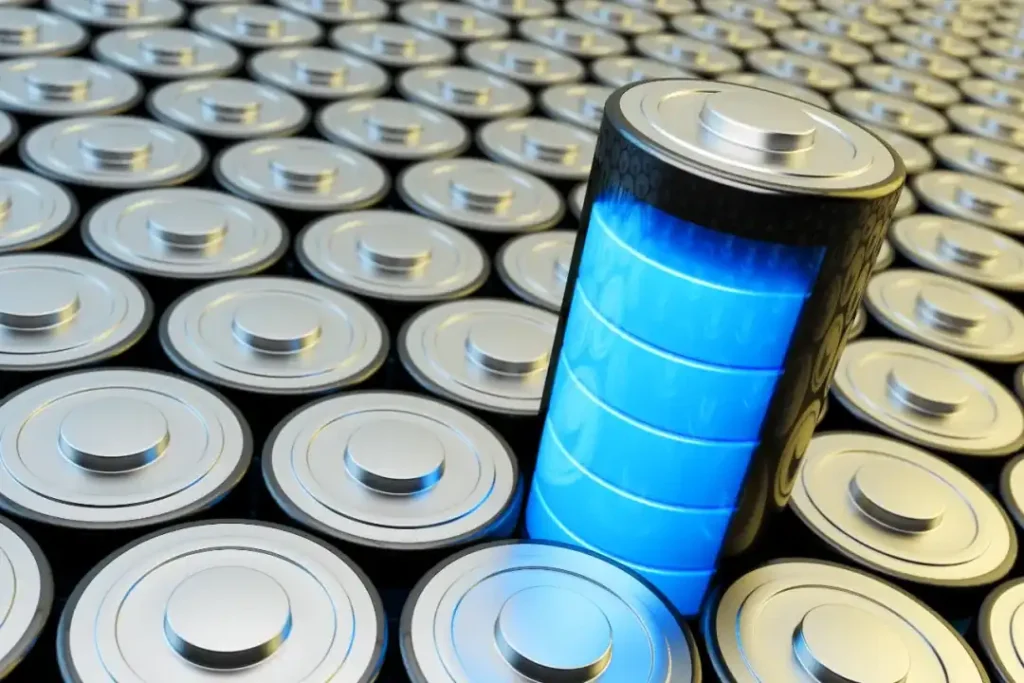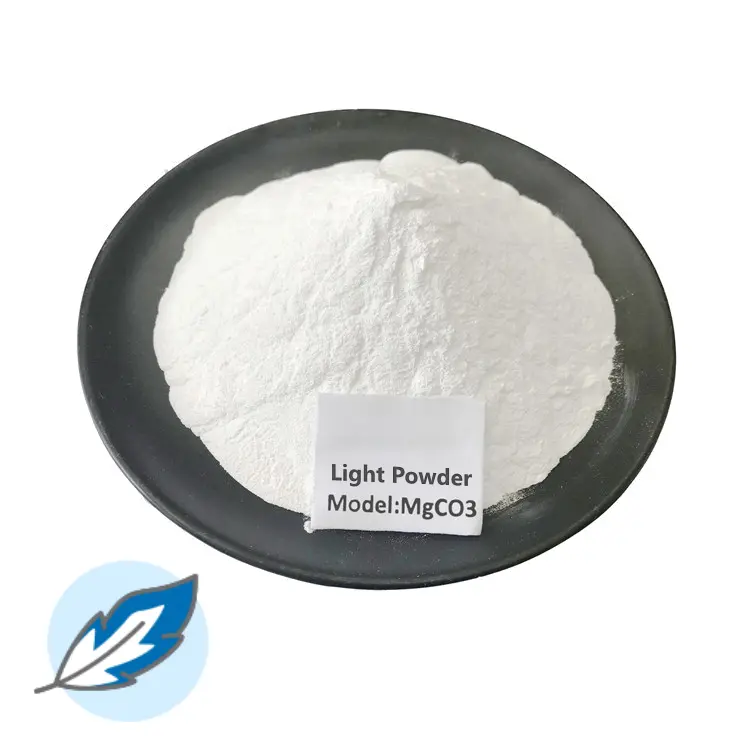Lithium batteries are now deeply integrated into our daily lives and have become a necessity. However, have you ever wondered what role magnesium carbonate plays in the manufacturing process of lithium batteries? Today, let us unveil the secret.

Li-ion battery performance deficiencies are mainly due to its poor cycling performance during high-current charging and discharging, poor safety, and lower energy density. The main factor leading to these shortcomings is the cathode material of lithium-ion batteries. Lithium vanadium phosphate is currently a popular material in the research of cathode materials for lithium-ion batteries. Lithium vanadium phosphate has three reversibly embedded lithium ions in the material structure, and has a high discharge voltage (3.6V/4.1V), which gives it a high energy density (528 Wh kg-1), at the same time, this material has a three-dimensional lithium-ion diffusion channel, and the diffusion coefficient of lithium ions within the material is high, so that it has a good performance of charging and discharging with high multiplicity please, there is a stable P-varicane in the crystalline structure of the lithium vanadium phosphate. In the crystal structure of lithium vanadium phosphate, there is a stable P-O bond, which improves the thermal stability of the material and makes it have a good safety performance, therefore, lithium vanadium phosphate material is considered to be the cathode material for power lithium-ion batteries with good application prospects.
Some researchers synthesized the composite cathode materials using industrial grade LiOH*H2O/V2W5,NH4H2PO4/alkaline magnesium carbonate as raw materials, and sucrose as carbon source, using the carbothermal reduction method, weighing the raw materials according to the stoichiometric ratio and mixing the raw materials with ball milling, and then using a rotary furnace for heating and sintering, with the pre-decomposition temperature of 300-350 degrees Celsius, the sintering temperature of 650-850 degrees Celsius, and the sintering time of 15-24h, with the sintering time of 15-24h. The pre-decomposition temperature is 300-350 degrees, the sintering temperature is 650-850 degrees, the sintering time is 15-24h, and the material synthesized in each furnace is 8-10kg. Through the test, it is known that the composite material shows good performance of high rate charging and discharging. Under the condition of 1C multiplier charging and 10C multiplier discharging, the discharge capacity of the composite material reaches 108mAh/g, and the capacity retention rate of 600 cycles is 84%; under the condition of 10C charging and 1C discharging, the discharge capacity of the composite material reaches 114mAh/g, and the capacity retention rate of 500 cycles is 92%.
In order to further improve the performance of lithium batteries, the researchers tried to introduce magnesium alkali carbonate into the preparation process of lithium vanadium phosphate. They synthesized the composite anode material using industrial magnesium carbonate as the raw material and sucrose as the carbon source, using the carbothermal reduction method. After a precisely controlled heating and sintering process, the composite material demonstrated an impressive high rate charge/discharge performance. This finding not only proves the feasibility of alkaline magnesium carbonate as a magnesium source in lithium vanadium phosphate materials, but also makes this technology, once mature, expected to bring significant cost savings and economic benefit enhancement to lithium battery production due to its low price and easy availability of raw materials.
The role of magnesium carbonate in lithium vanadium phosphate is mainly reflected in the following aspects:
- Improve conductivity and energy density: the addition of magnesium carbonate can significantly promote the movement of ions in the solid state, thus accelerating the charge and discharge rate of the battery, and improving the discharge capacity and energy density of the battery.
- Improve material performance: By coating the powder, magnesium carbonate can improve the surface properties of the anode material, improve the stability and cycling performance of the material, and at the same time increase the activity and utilization of the anode material.
- Enhance the safety: magnesium carbonate is also used in the manufacture of battery diaphragm, its excellent barrier properties and chemical stability can effectively prevent the battery internal short circuit or combustion explosion and other safety hazards, improve the safety of the battery.
In summary, the application of magnesium carbonate in lithium vanadium phosphate not only improves the performance of the battery, but also reduces the production cost, has a wide range of application prospects!
Overall, the role of magnesium carbonate in lithium batteries should not be underestimated. With the progress of science and technology and in-depth research, we have reason to believe that magnesium carbonate will play a more important role in the future manufacturing of lithium batteries, bringing us safer, more efficient and economical energy solutions.

